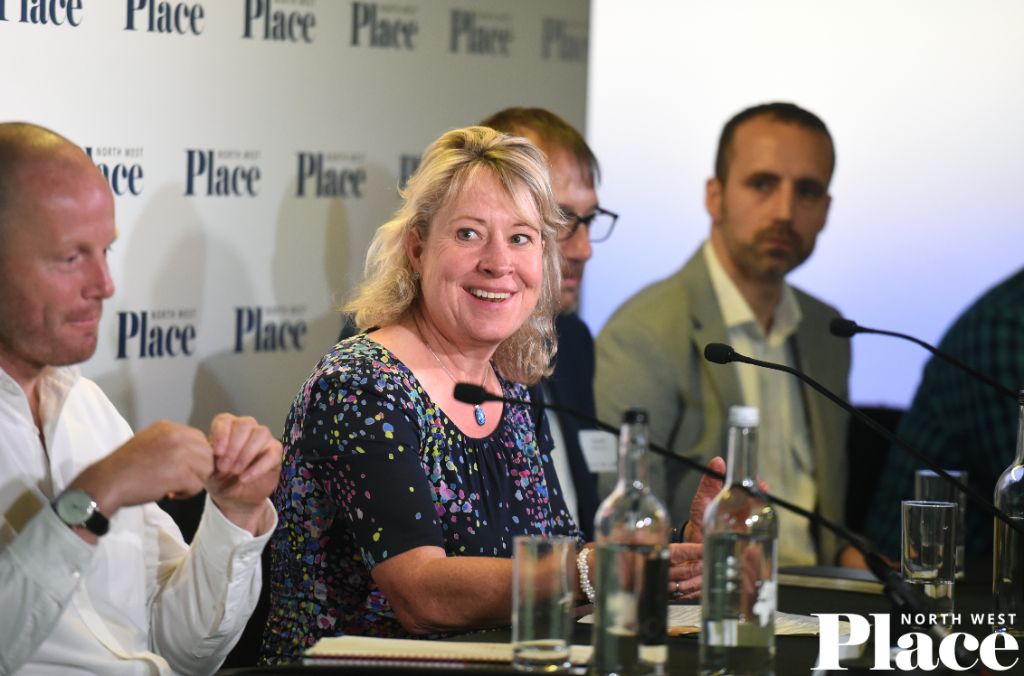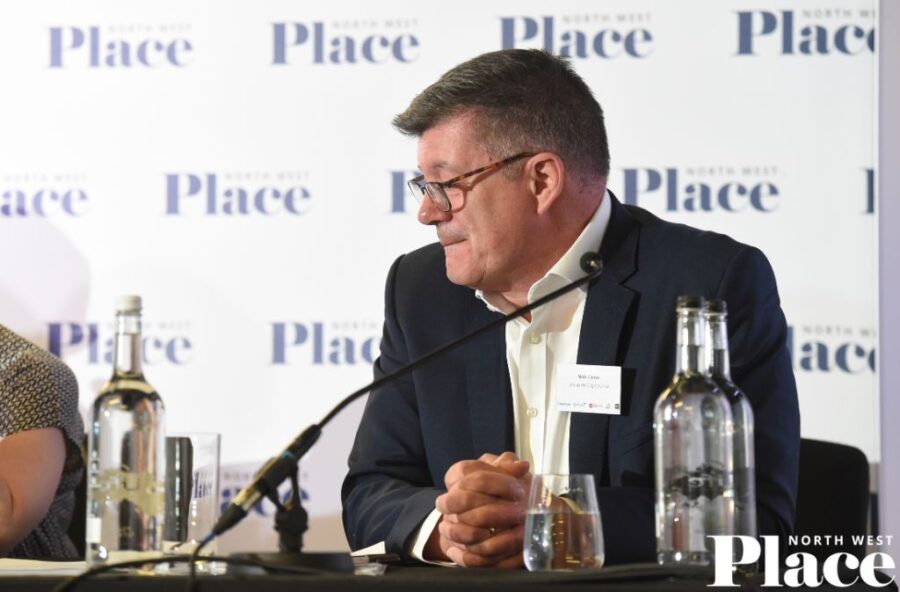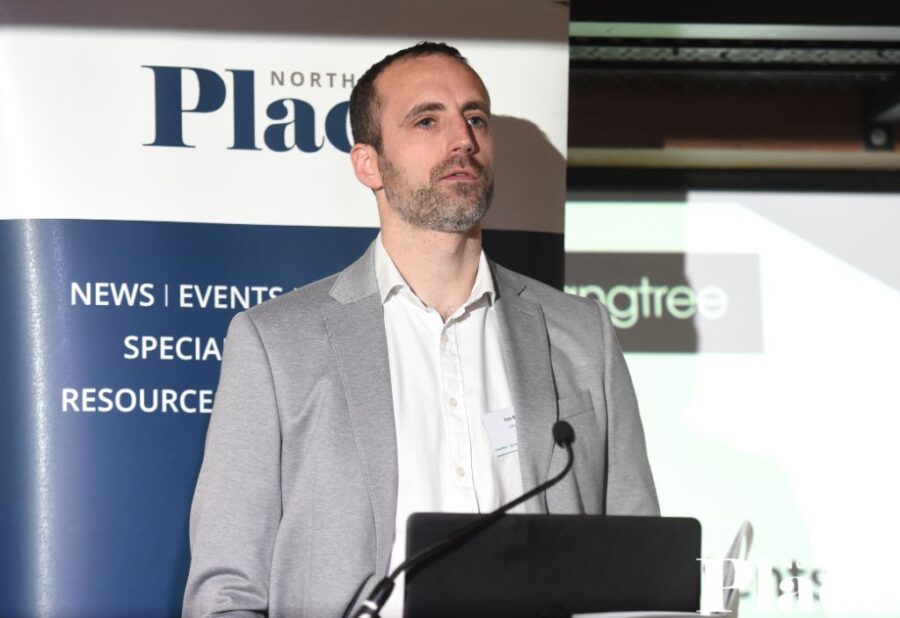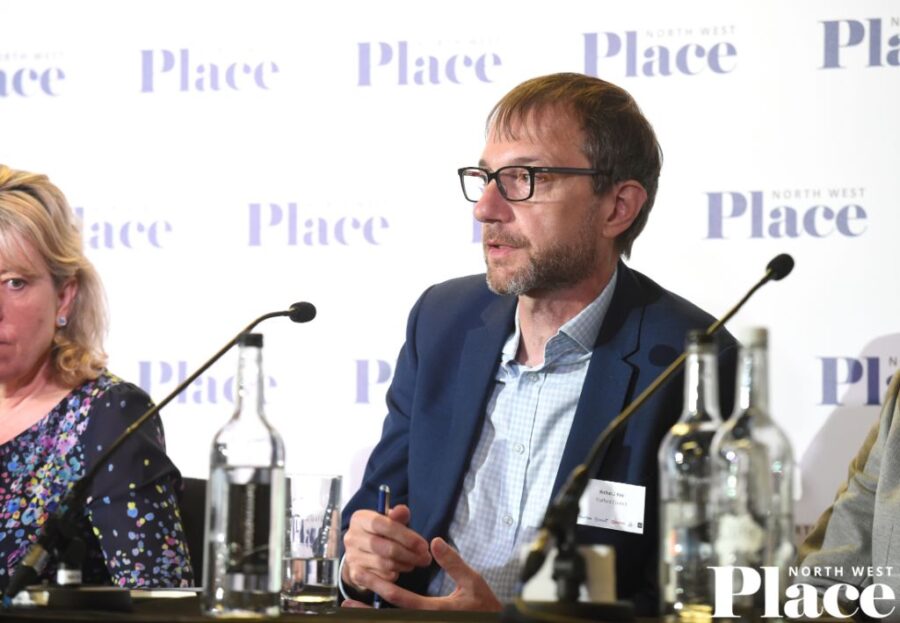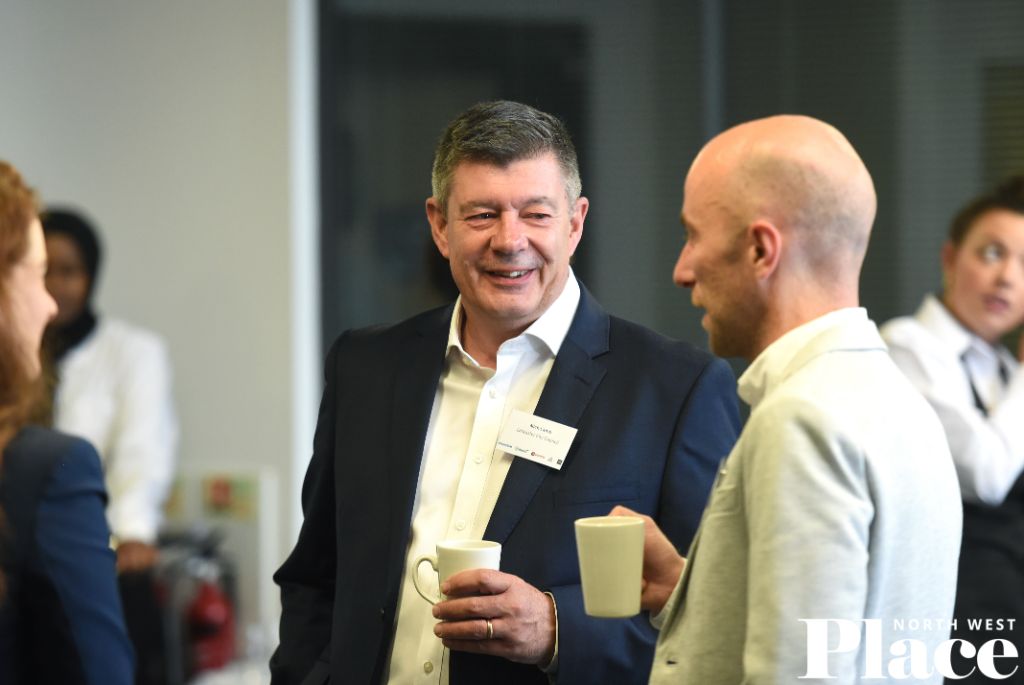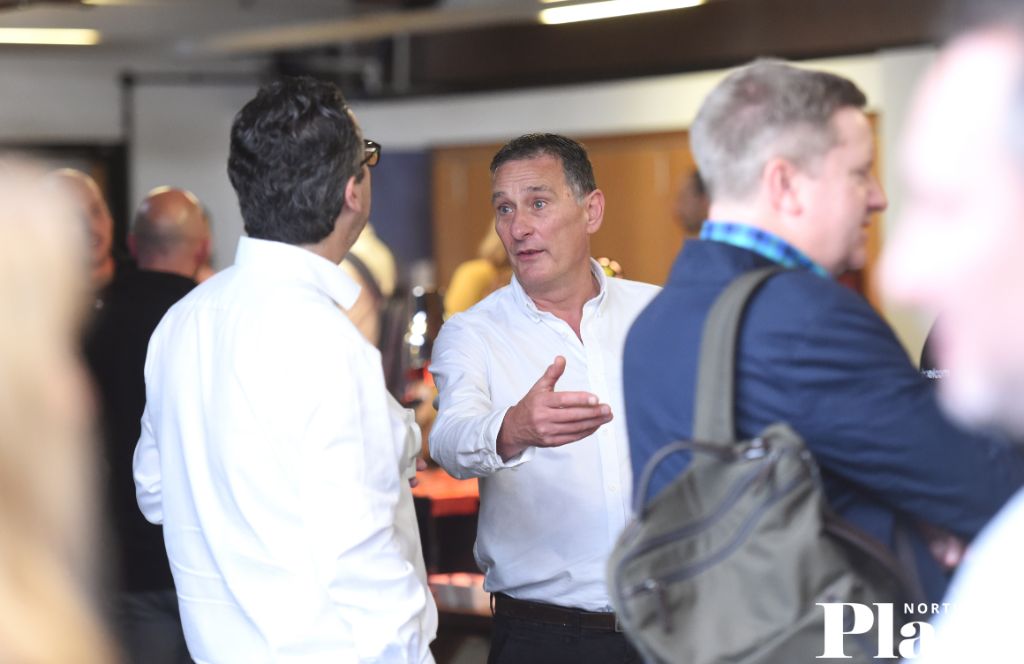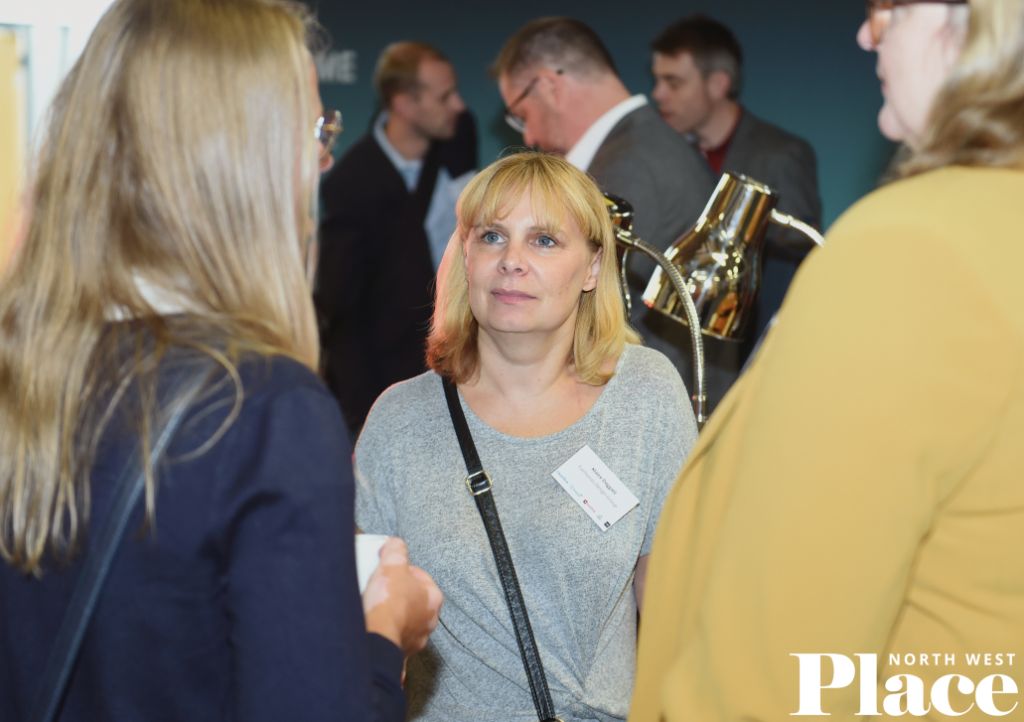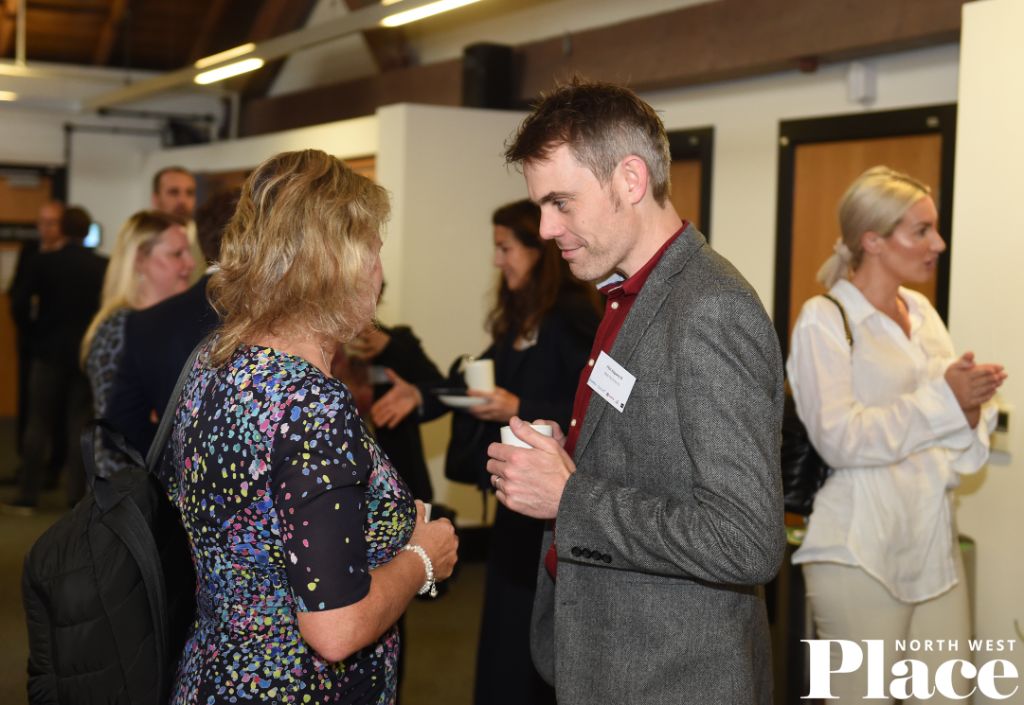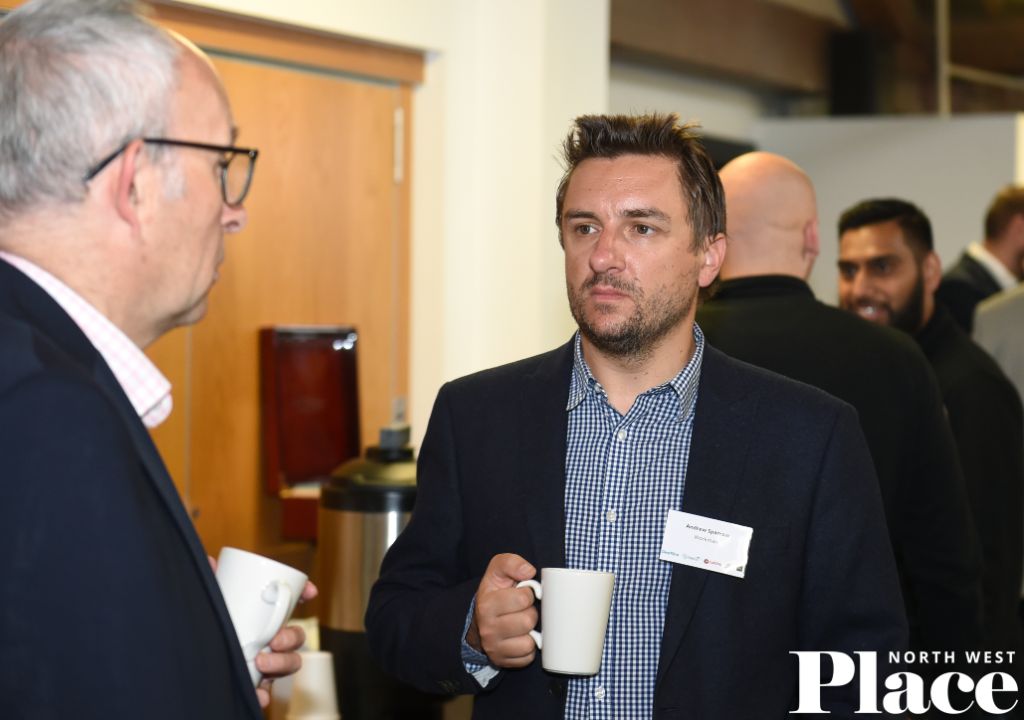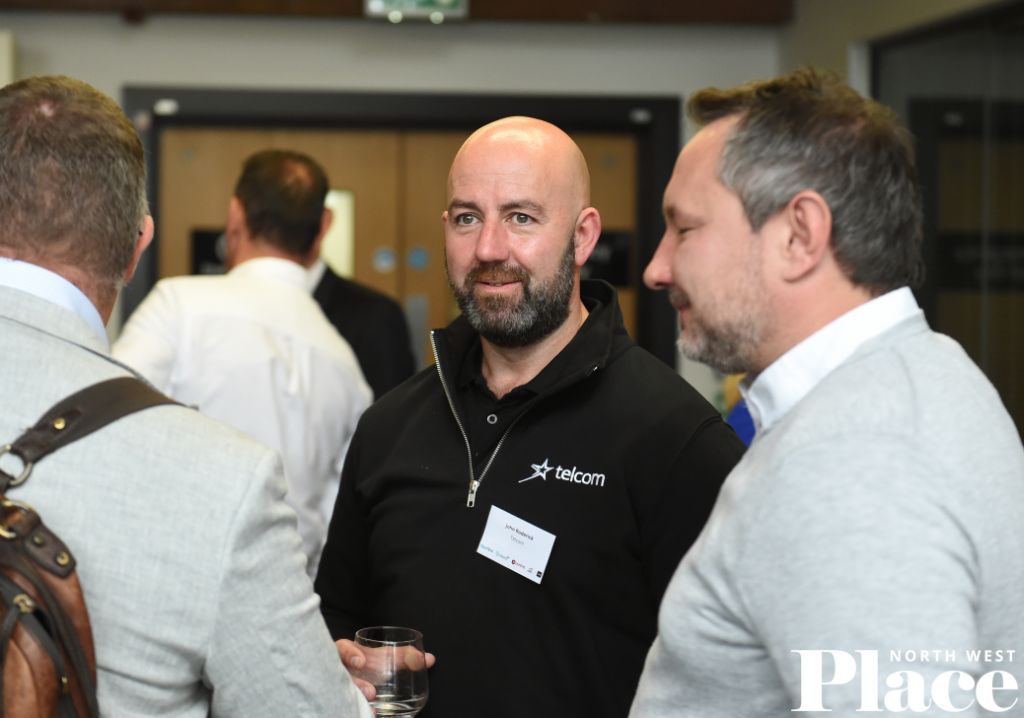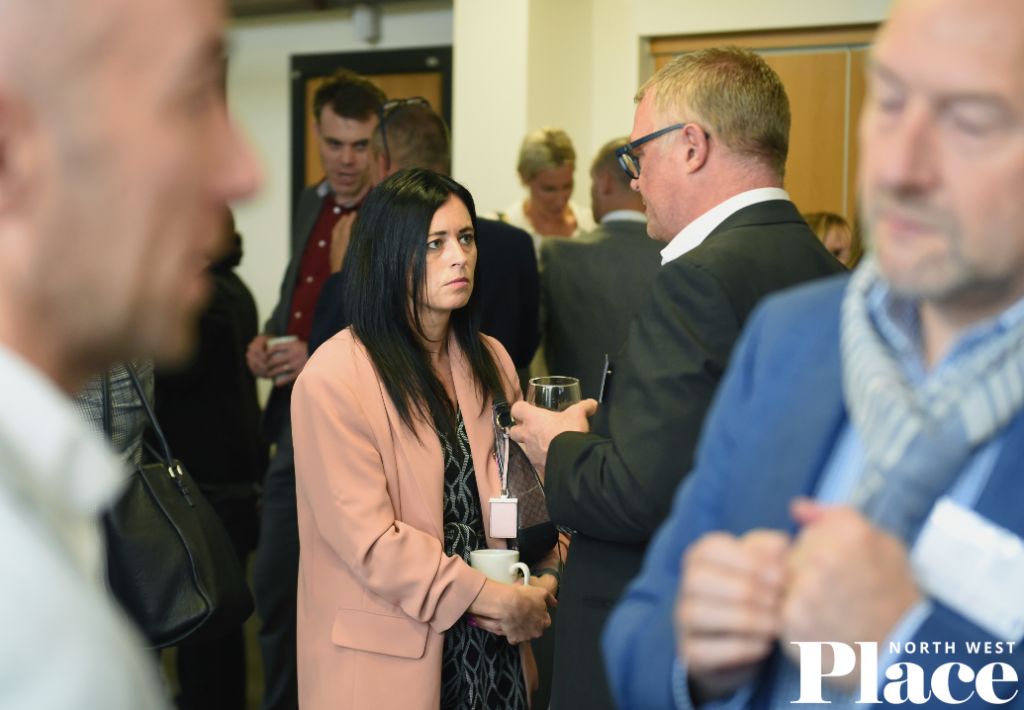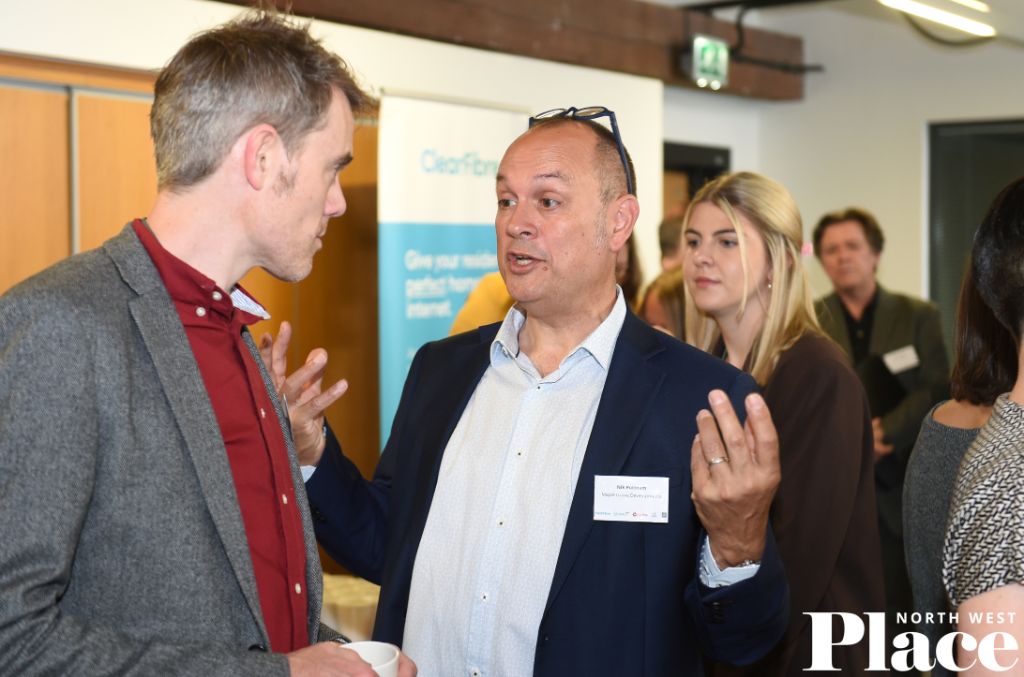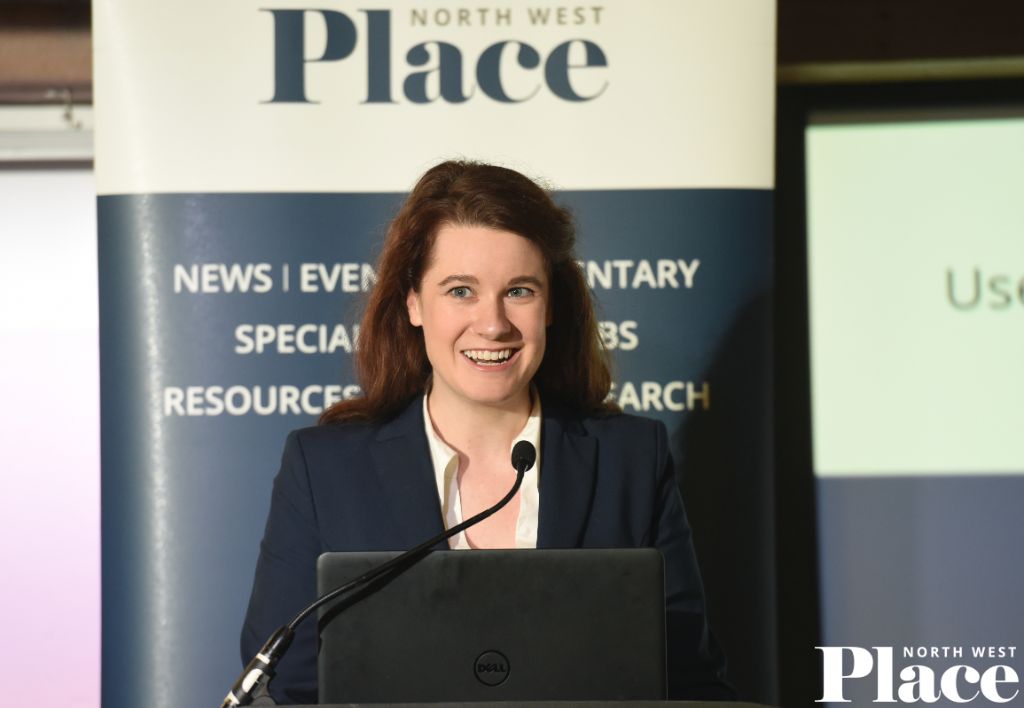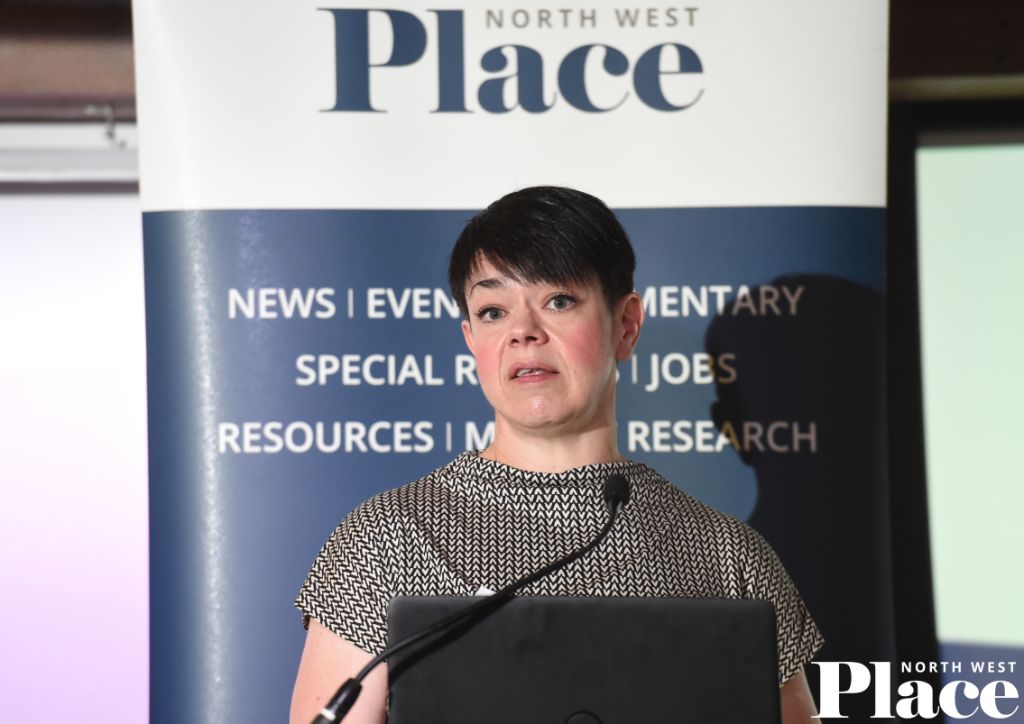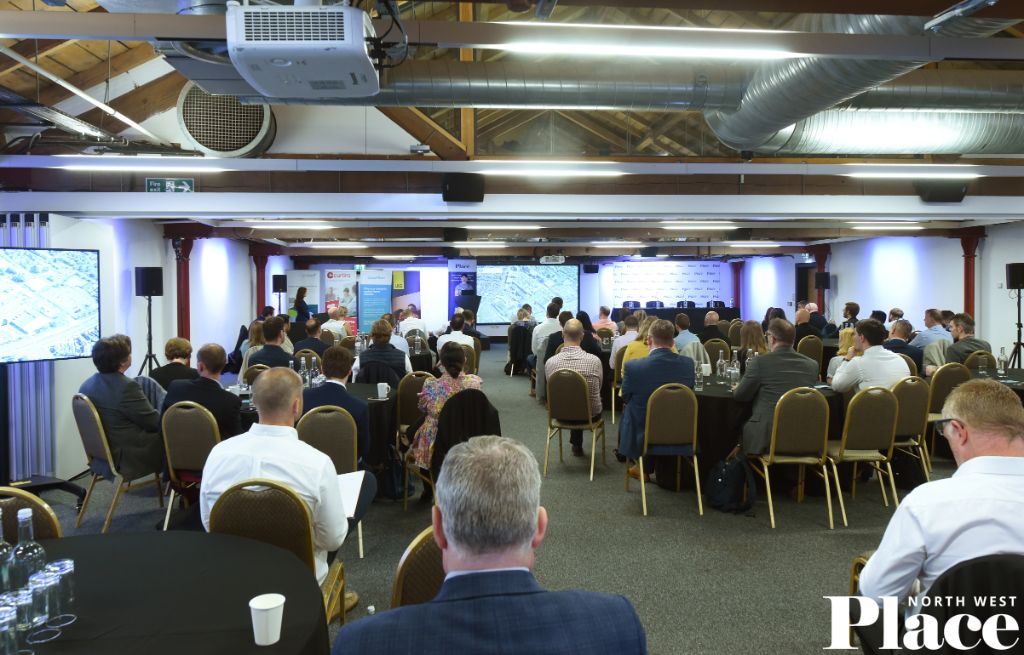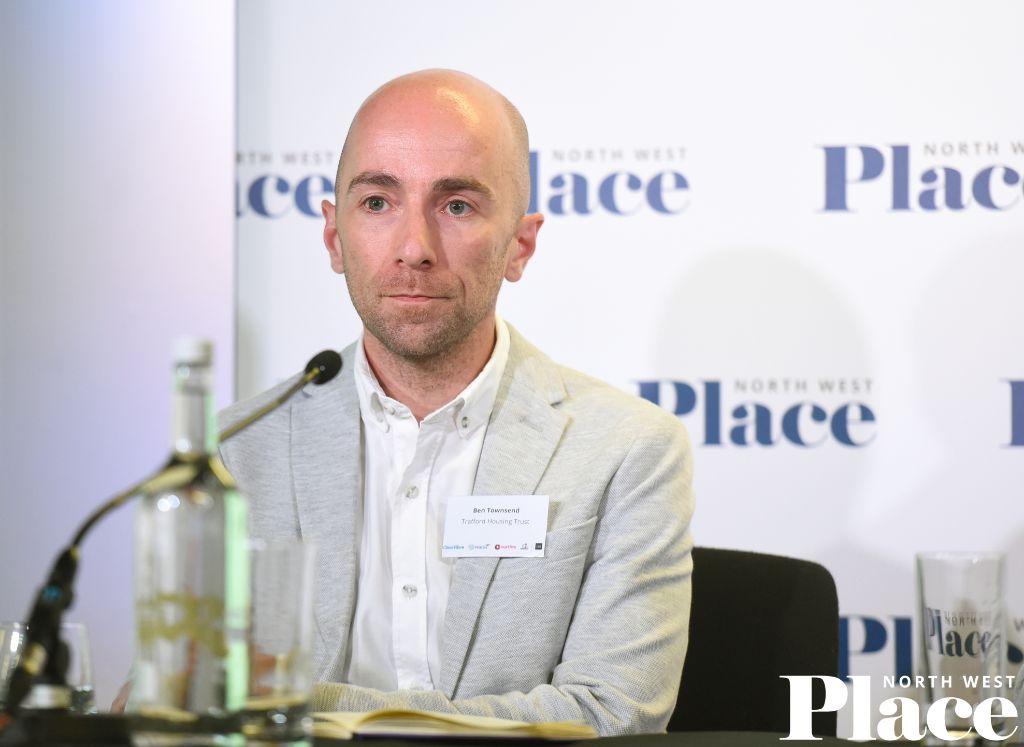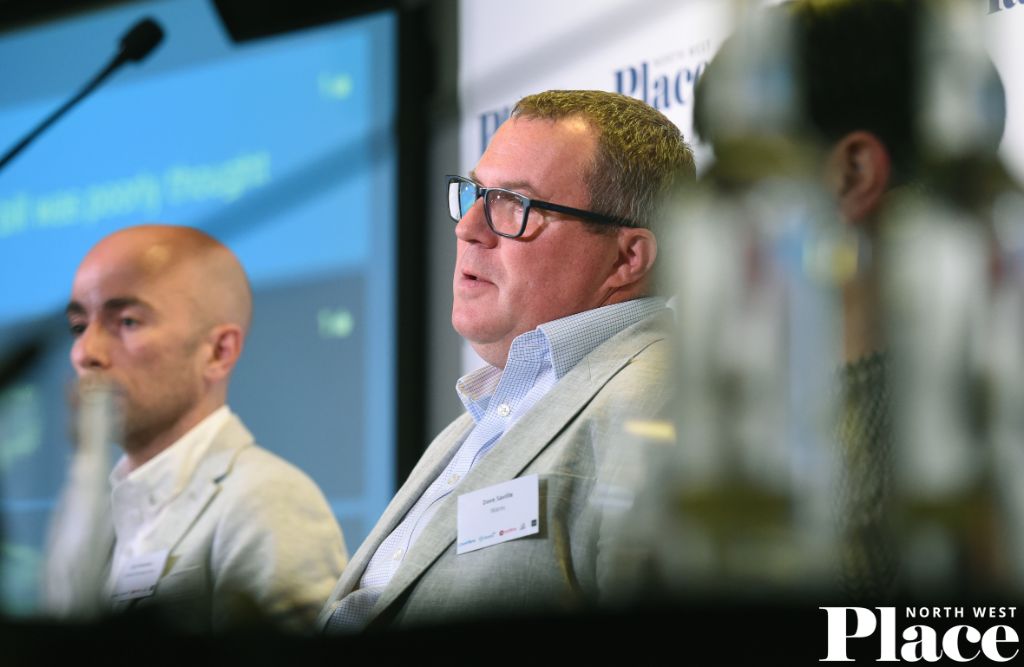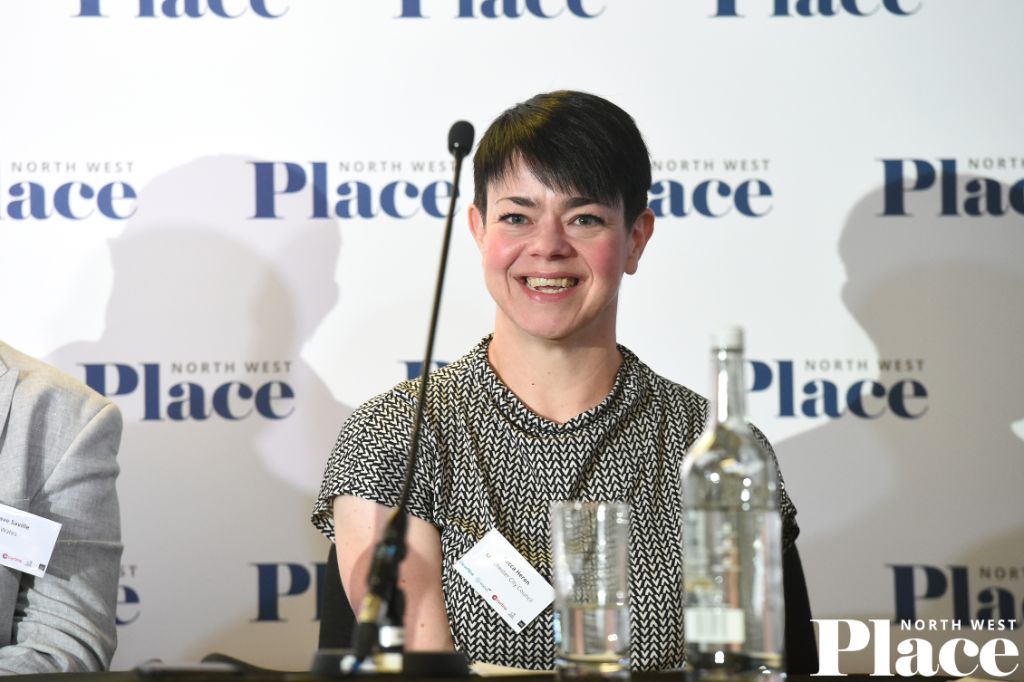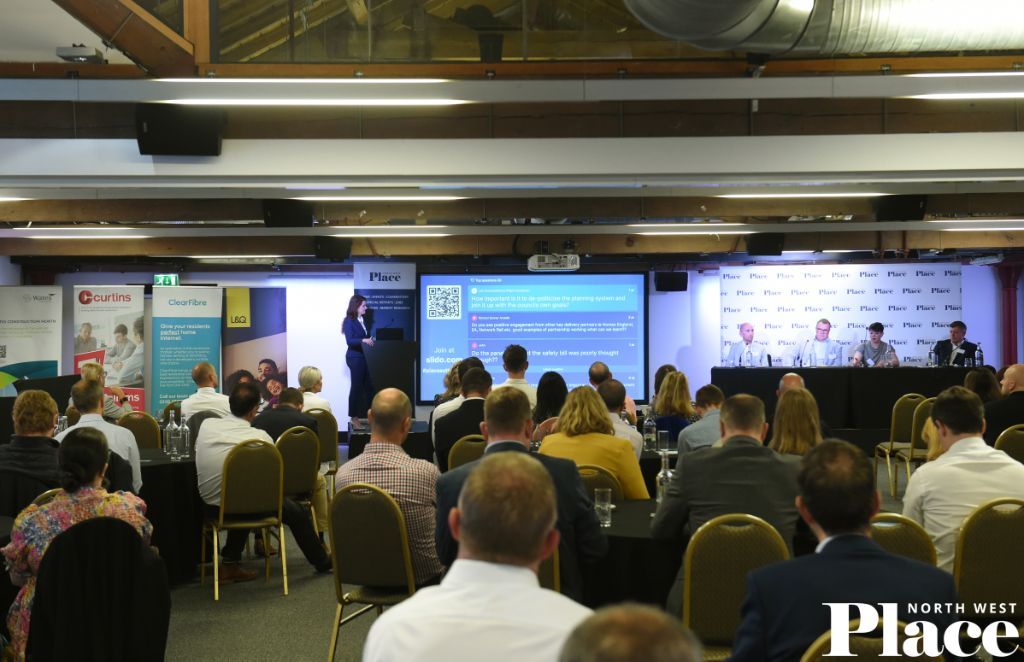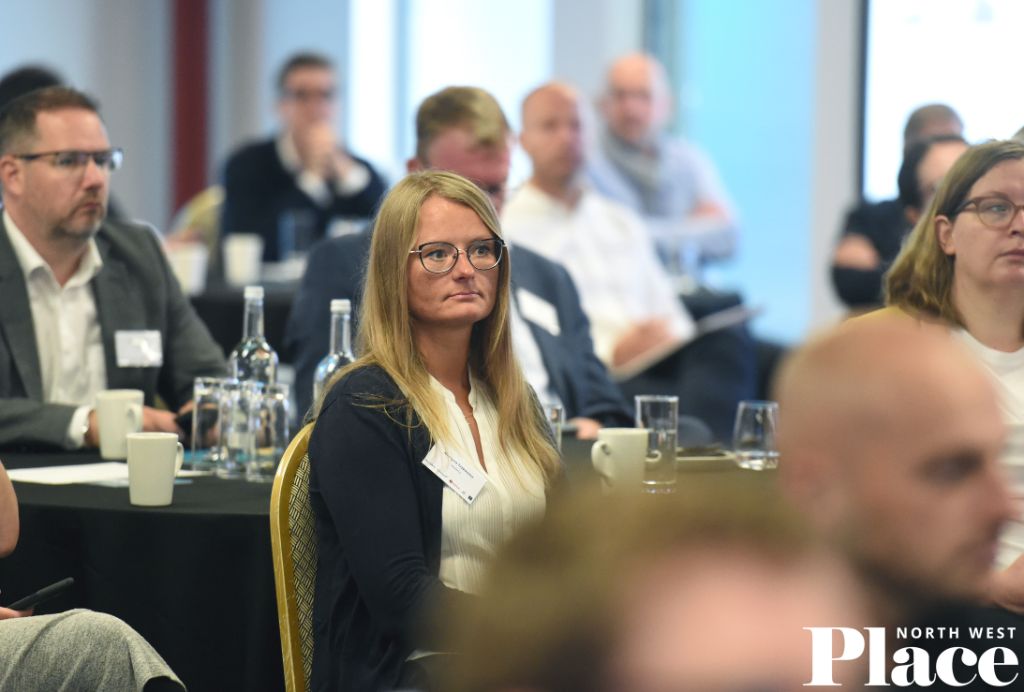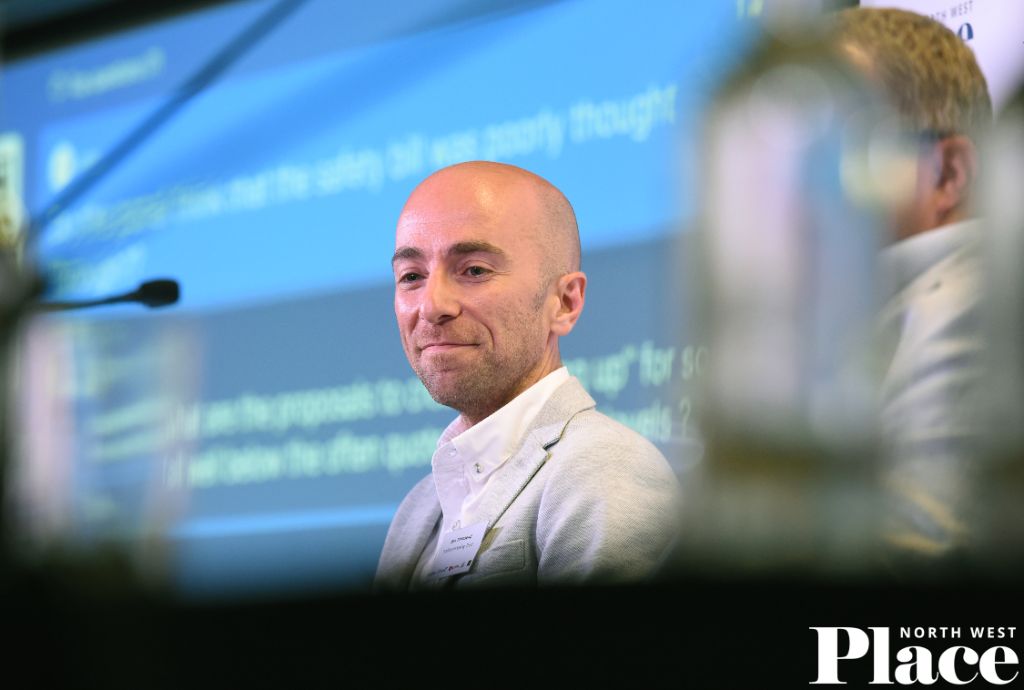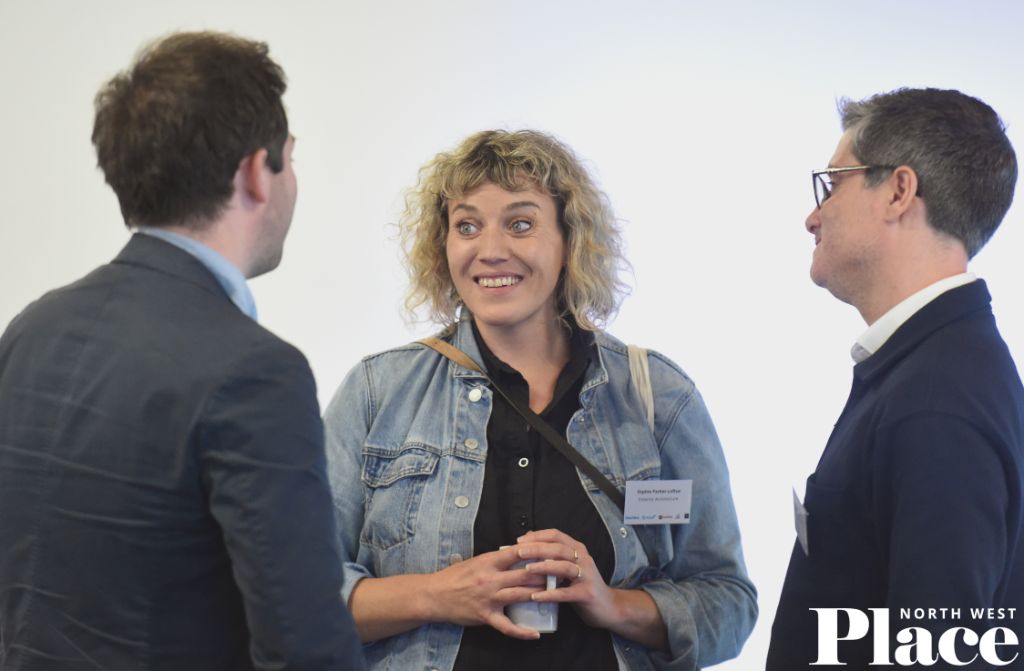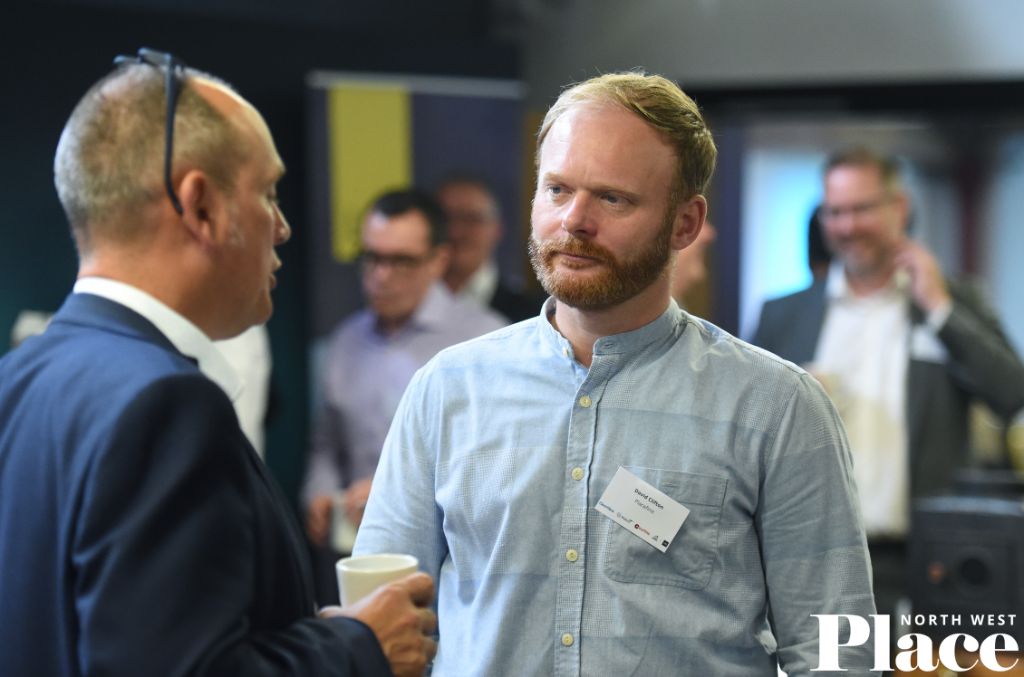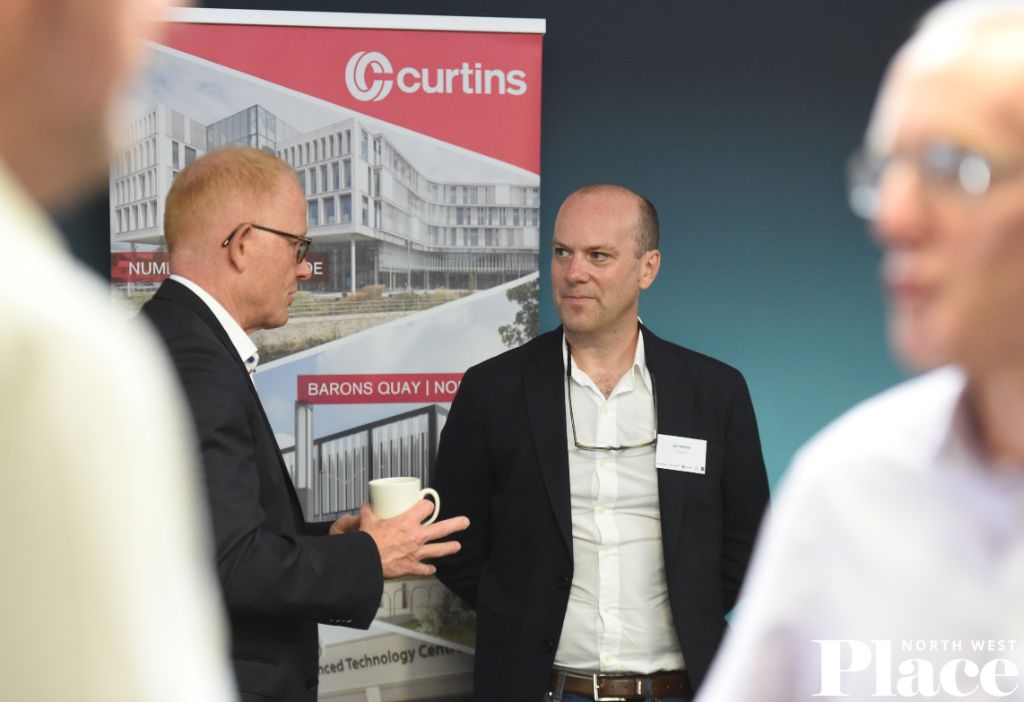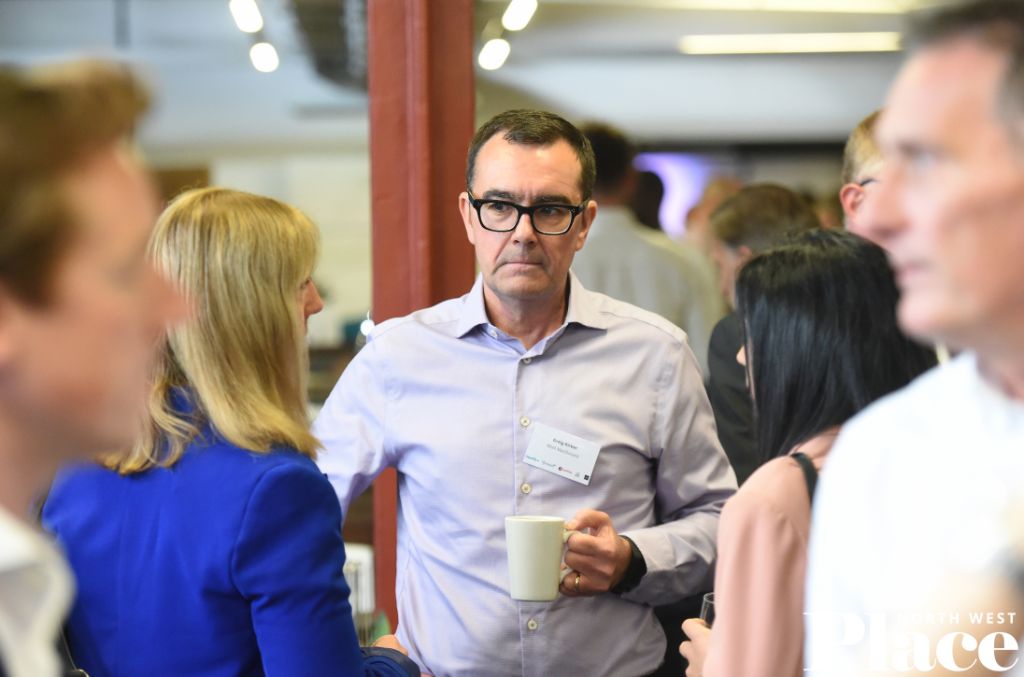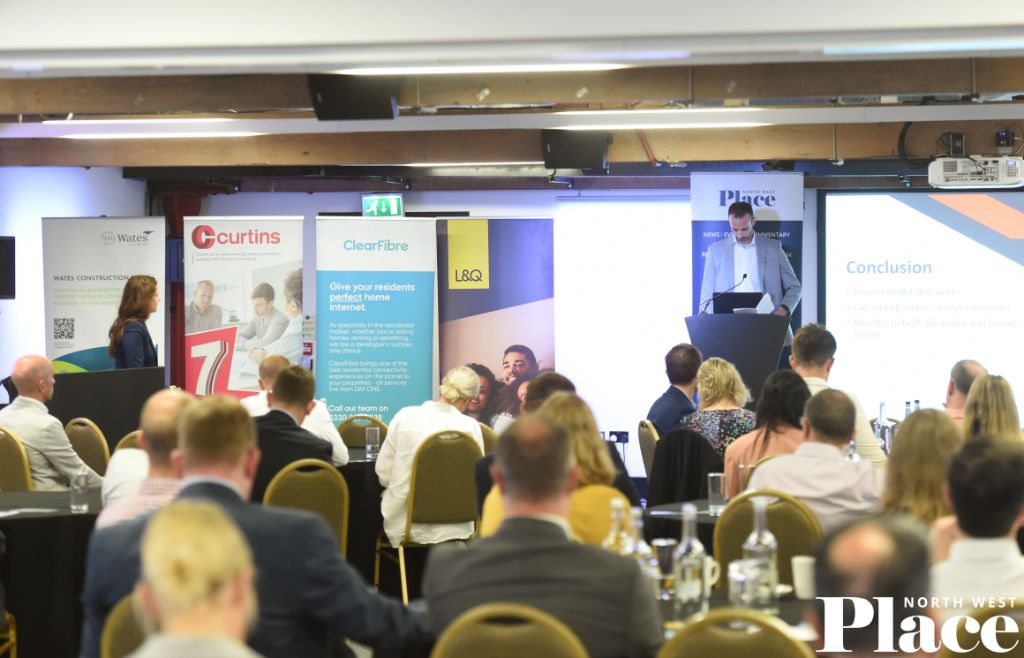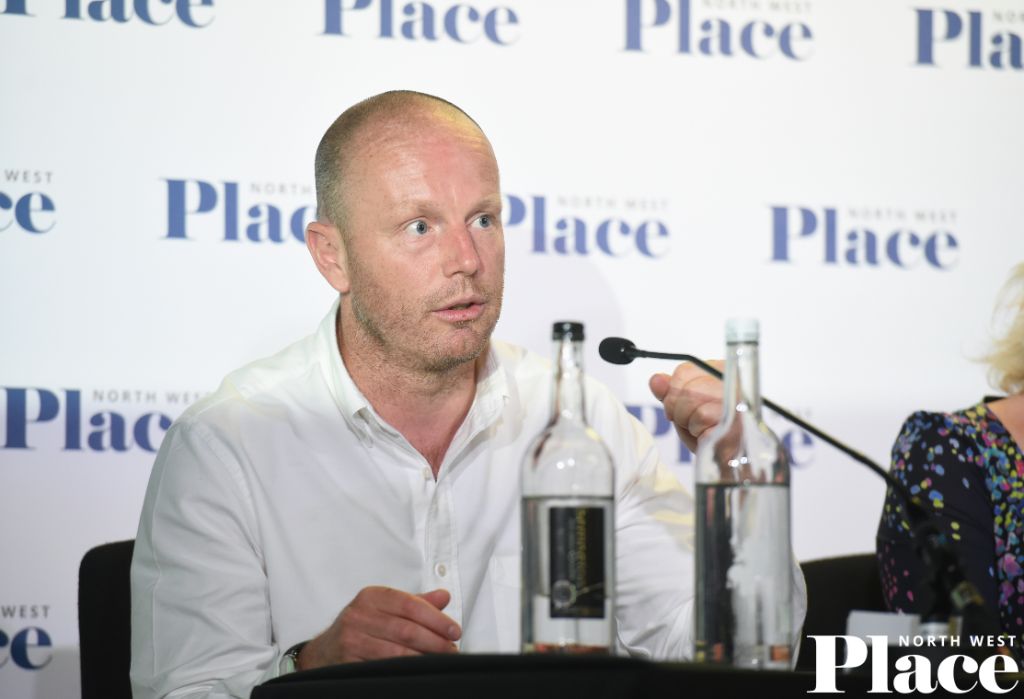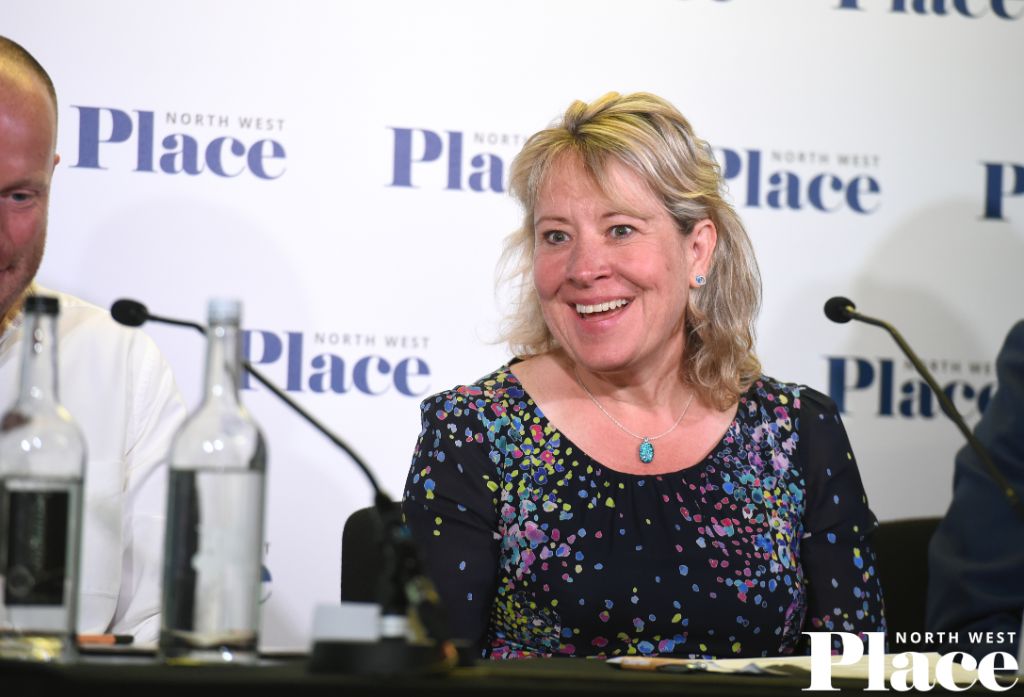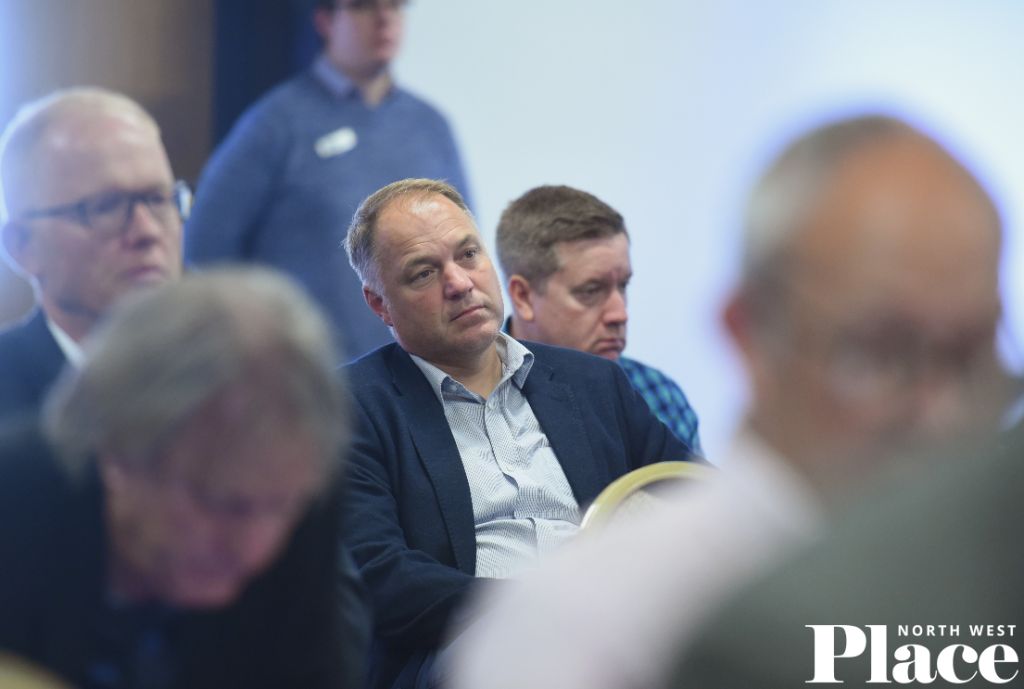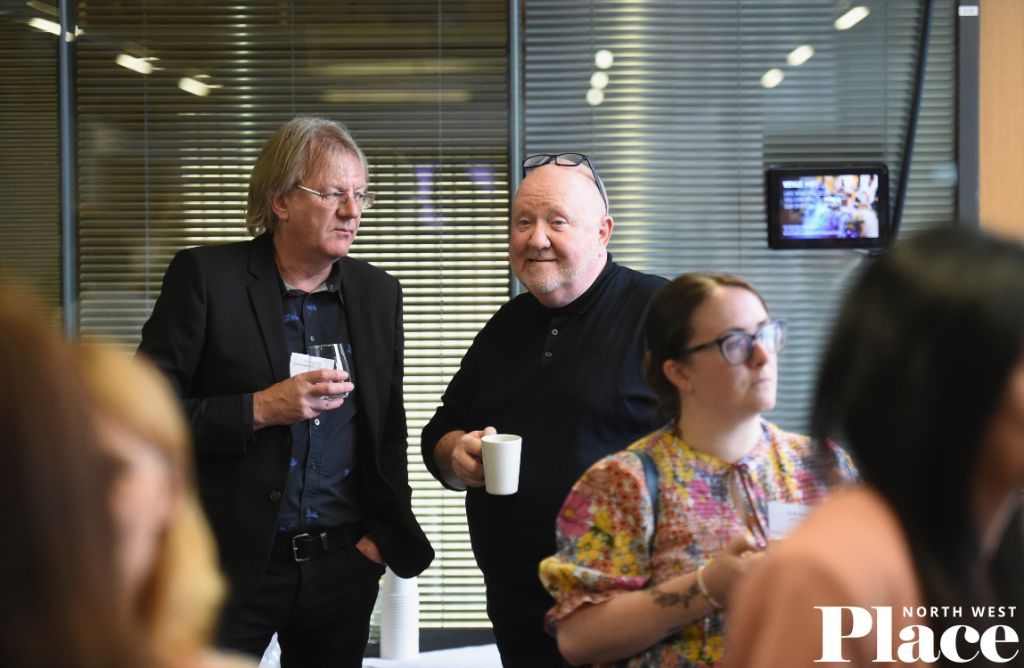Event Summary
Meet the Authorities | Photos and summary
The need for a strong and clear vision to keep levelling up and the projects it could fund alive was a central theme at Place North West’s Meet the Authorities event.
Sponsored by Wates, ClearFibre, Curtins, L&Q and Trafford Housing Trust, Meet the Authorities was held on 7 July at the Science and Industry Museum in Manchester.
Here is a brief overview of the major talking points from the day’s discussion.
Scroll down to see photos from the event.
The power of frameworks
Becca Heron, strategic director of growth and development at Manchester City Council, discussed how frameworks have played a role in the city’s success during her opening remarks for the conference.
“I think the success of Manchester is largely built on a long-term strategic approach,” she said. “Growth, development and regeneration takes decades – not years – and requires a really clear vision.”
She described how the council has multiple strategic regeneration frameworks and neighbourhood development frameworks.
Frameworks, she said, “are not just a paper exercise”, adding that they act as a roadmap for growth.
“They enable us to take a long-term vision and a consistent approach to investment,” she continued. “They allow a place-based approach, rather than a plot-based approach to development.”
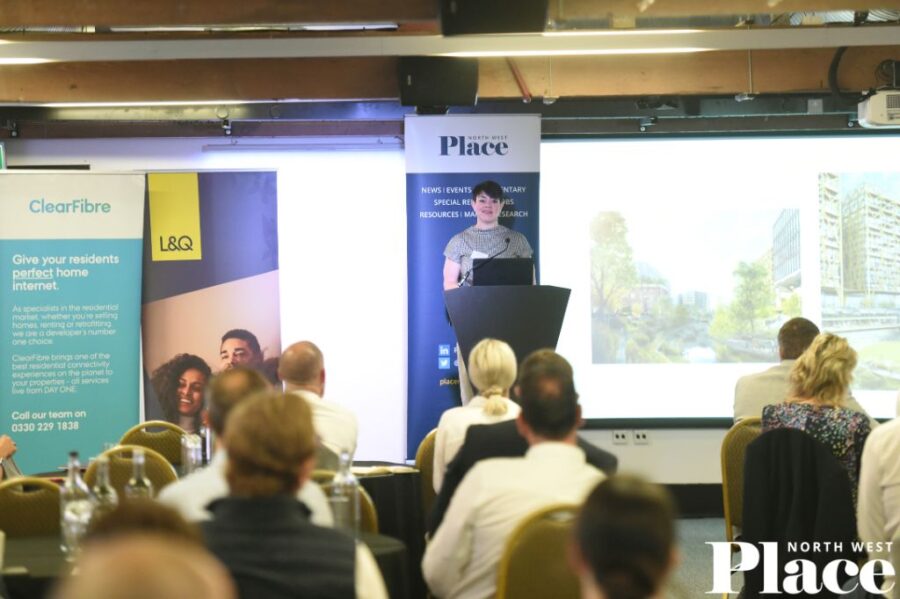
Manchester City Council’s Becca Heron delivered the opening remarks for the conference before joining the first panel. Credit: PNW
Levelling up
Taking place against a tumultuous political backdrop – on the day Prime Minister Boris Johnson gave in to pressure to resign – the government funding outlook was inevitably a hot topic of the day.
“Disruption and uncertainty aren’t great within any organisation,” Heron said. “It doesn’t really help with the smooth running of government in decision-making and administration.”
Heron noted that Manchester currently has a levelling up bid going in for Wythenshawe, but said there needed to be more long-term investment to really turn “levelling up” from a political buzzphrase to reality.
“Viability remains a challenge, even in high-demand areas like Manchester,” she said. “Access to long-term certainty of funding is really challenging. It’s something that Greater Manchester and Manchester have been lobbying on for a long time.
“There are various pots available, but bidding for £20m here and there is time-consuming,” she continued. “It’s a quite fragmented approach when you’re trying to bring forward large-scale development.”
Economic headwinds and viability
Looking away from political turmoil, the conference’s first panel discussed the current economic situation, including supply shortages and inflation.
Lancaster City Council’s interim head of property, Nick Lamb, said budgeting was challenging in today’s difficult market.
Lamb explained: “We suffer from not being able to fix prices, which causes issues with budgets. Finding partners that can share the risk with us [is key], because we will take risks, but we’re not here to take all of it. I’m interested in finding partners that would [take] a 15- to 20-year view on the rate of return, not a five-year view.”
Dave Saville, Wates regional director, agreed that risk must be shared and gave an example of how to negotiate using cost-saving solutions.
“If you look at your capital expenditure, and you play that against an original budget, it’s a challenging appraisal to make for any client,” Saville said.
“So, if we can provide further information on the long-term gains that can be generated around operational expenditure, particularly around our zero carbon solutions, and therefore lower energy costs, lower operating-cost buildings, hopefully, that helps with the appraisals and makes the commitment easier to make for our clients.”
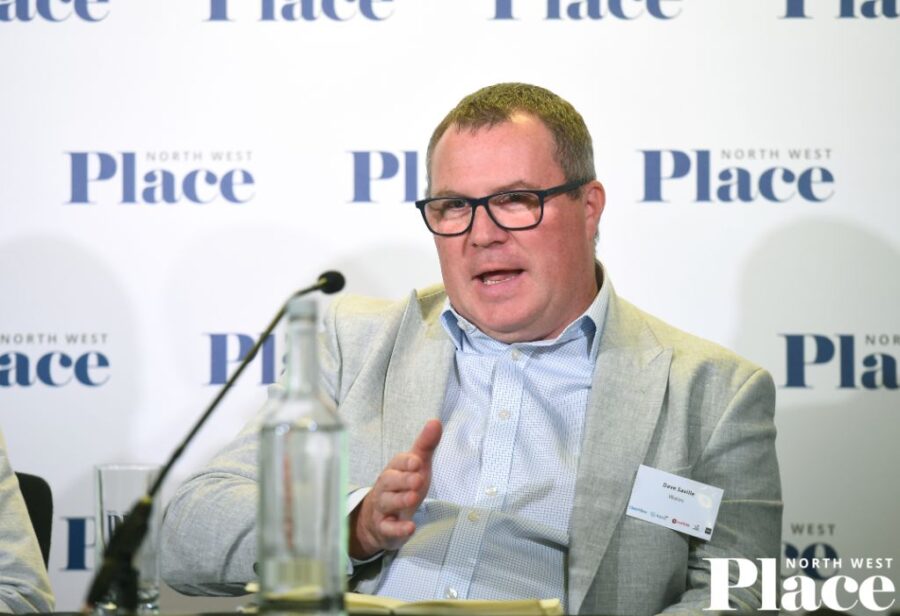
Wates’ Dave Saville shared how developers can help the supply chain in times of economic uncertainty. Credit: PNW
Supply chain pressures
Wates’ Saville highlighted challenges over the supply, in particular when it comes to finding affordable solutions.
“What we’ve seen over the last year or so is a real uncertainty in the supply chain as to what the impact of inflation will be,” Saville said. “Often, when they price at the moment, there’s an element of risk embedded in, despite the fact they don’t necessarily tell you this.”
Saville argued that if contractors have secure and strong partnerships with developers and local authorities they can help mitigate this issue.
“If you get to a point when you’re working with a client and partner where you’re absolutely clear that this [project] is moving forward and you understand the budget around it, you can then speak to the supply chain and say, ‘This is real. We can head into contract quickly and you’ll have guaranteed work coming in.’
“All of a sudden, they take a different risk profile on it,” he continued. “They’re not trying to hedge their bets for the next six to 12 months. They’ll have financial certainty around it.”
Sustainability and retrofit
Manchester’s Heron argued that retrofitting was “one of the biggest challenges” the industry and local authorities is facing.
“Our estimate is that for our own council housing stock, it’s going to cost £375m to retrofit against a rent roll of £62m,” she said. “Where is that funding going to come from?”
Ben Townsend, director of development at Trafford Housing Trust, added: “We have the challenge of bringing forward mixed-tenure developments, and we’ve got an aspiration to deliver sustainable homes.
“When it’s for our lowest income and most vulnerable tenants, it’s very clear that we are happy to invest in those homes to bring down their operating costs for the people that live there,” he said.
“The challenge we have is then when we’re investing additional cost in homes that we deliver for sale you don’t necessarily see that reflected in a sales price or certainly not in a mortgage valuation price.”
Townsend said THT was interested in seeing if mortgage companies would start increasing the value of properties that have sustainable features.
“That will then allow the market to deliver those [features],” he said. “If you’re getting more money for [the houses], you’re willing to invest more money in them.”
Wates’s Saville called for more support from central government around building regulations to set a level playing field, so people investing in sustainable materials cannot be undercut.
Lancaster City Council, Lamb told the audience, was among the first authorities to submit its climate emergency local plan review, which will set new building standards if it’s approved in October.
Why JV?
To answer this question, Tom Bellis, group finance director of developer and experienced joint venture partner, Langtree, gave the following list in his presentation.
- Combine your assets
- Introduce complementary skills and resources
- Manage risk – financial and political
There followed a lengthy and entertaining debate about the things that can go right and wrong in a JV partnership. These include when developers forget they are in a public arena – for instance, do not rant in an email if you would not want your words to appear in answer to a Freedom of Information request about the project. And sometimes politicians face local reputational risk that private sector partners need to be mindful of.
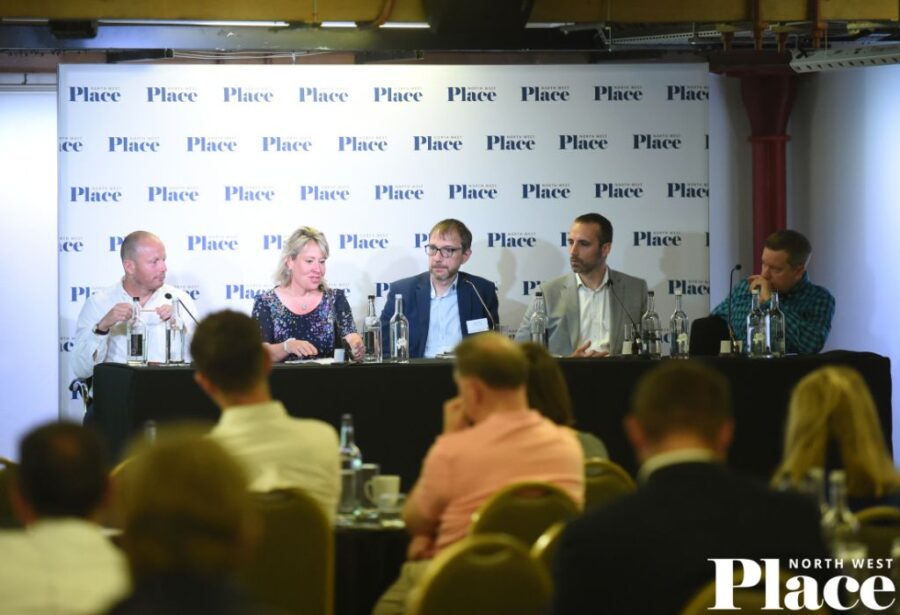
The second panel of the day included FEC’s Gavin Taylor, Maple Grove Developments’ Karen Hirst, Trafford Council’s Richard Roe, Langtree’s Tom Bellis, and Bury Council’s Paul Lakin. Credit: PNW
Adapting to change
The best plans can be drawn up in good faith, but the pressures of the moment can necessitate change.
Gavin Taylor, executive director of developer FEC, said: “We set out these arrangements in terms of JV structures, SPVs, development management agreements, etc. and on day two just rip them up because everything evolves. Everything changes. Everything turns into something different.”
He cited Covid-19 as a prime example of something nobody foresaw.
“You can go into the JV with the best of intentions, but what you need to be is absolutely agile in your approach,” Taylor argued.
As the situation changes, having a clear line of communication and a solid relationship based on trust is important, said Karen Hirst, managing director of Maple Grove Developments. She said that costs have gone up and has given some sticker shock.
Hirst said she could leverage Maple Grove’s sister company, Eric Wright Construction, to provide facts and figures around why material costs have gone up.
“We could give actual examples of ‘this is what has happened with the cost of steel’, just going through it step by step and not in a patronising way, but to hep and educate,” she said.
That enables partners who have productive conversations about what changes can be made.
“At the end of the day, everyone wants [the project] to happen – you’re all absolutely in it together,” she said.
Sometimes, though, partnerships do not work out. When that happens, Langtree’s Bellis advocates for just being truthful.
“It goes back to relationships and communication and being honest,” he said. “If something is wrong, or if something doesn’t work, we’re all grownups. Let’s get it out there early. The earlier you can head off any sensitivities the better.”
Profit goals
Profit is not just of interest to the private sector. Richard Roe, corporate director for place at Trafford Council, argued that local authorities are also interested in financial gain.
“We want to make money out of these ventures as well,” Roe said. “We want the social benefits and the regeneration and everything else.”
Roe also made a point that “free land”, a term often used to describe a council’s assets in a partnership, is a misnomer.
“Cross out the free,” Roe said. “We don’t have free public land because we need to maximise the benefit from our land assets as everything else.
“There’s a commercial imperative and a commercial driver from the local authority. The profit isn’t all on one side of the table.”
Partner priorities
What are the public and private sectors looking for in a partner?
Paul Lakin, executive director of place at Bury Council, said experience was key. His team is working with Bruntwood and Muse on several regeneration projects. Both companies have strong track records, which helps boost the council’s confidence in the end result.
Both companies also have experience in different kinds of projects, which adds to their attractiveness to local authorities.
“We don’t want a masterplan that is tied to a developer’s single specific capability in a town centre, because we think place needs to evolve,” Lakin said.
Maple Grove’s Hirst said that the private sector is just concerned about a partner having a proven track record.
“We all want to know – both sides. We want to know if the local authority has done it before, or if they got others they can talk to to learn from. And you [local authorities] want to know have we done it before and can we work with you and deliver?”
Laken added that local authorities in Greater Manchester talk to each other.
“If you build a good reputation with one and you prove you can deliver – that word gets around much quicker in this part of the world than in other places where local authorities are more loggerheads with each other,” Lakin said.
For FEC’s Taylor, he focuses on relationships when forming business partnerships.
“It’s about chemistry,” he said. “My boss will always walk into a meeting and, within 30 minutes, you’ll know whether he wants to work them or not.
“He’ll come out of that meeting and say ‘Gavin, they’re just not in our church. The opportunity is great, but we just can’t work with them.’ It’s pretty simplistic.”
The next Place North West conference is Greater Manchester Development Update, held 8 September at the Science and Industry Museum in Manchester. Tickets for this in-person event are currently available.


